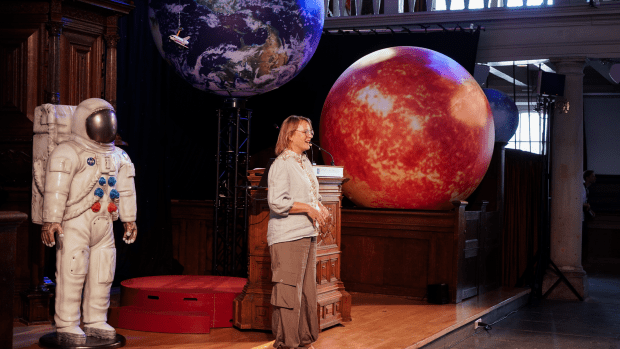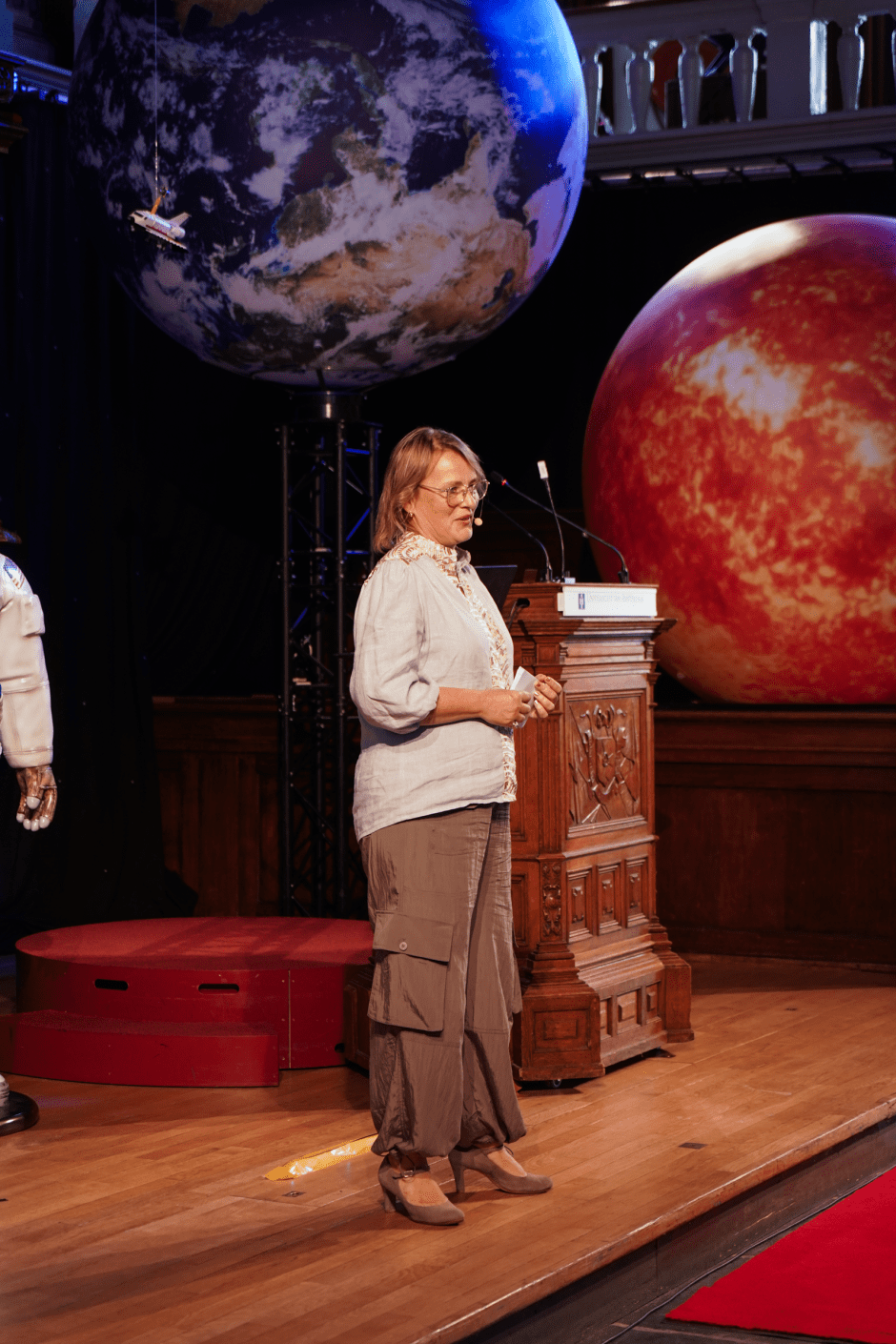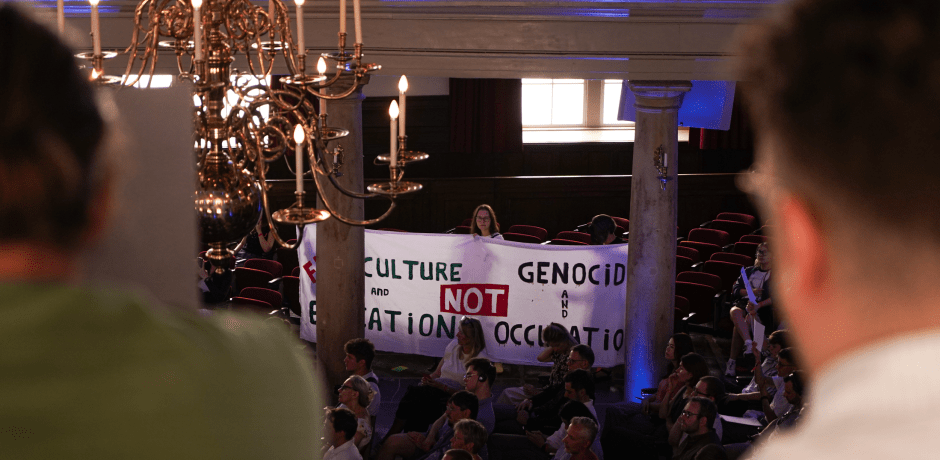
Opening academic year | New president of the Board wants ‘co-governance’ for complex UvA issues
In her first annual opening this afternoon, UvA president Edith Hooge addressed both last spring’s demonstrations and proposed cabinet cuts. She coined the term “collaborative governance” to resolve complex UvA issues after all. Both outside and inside the Aula, pro-Palestine demonstrators were ready to interfere with the annual opening. They succeeded somewhat.
It was not an overly optimistic observation that the new president of the Executive Board Edith Hooge made in the Aula this afternoon in her first speech to mark the opening of the academic year: “We are on the eve of the biggest and most reckless cuts to higher education in decades, amid a bleak anti-intellectual climate,” she told her audience. By this, she was referring to the gigantic cuts envisaged by the new cabinet, which will “undermine the foundation” of science and “the stability’ of universities”, she feared. “It requires pulling together and connecting between and within universities.” Hooge repeated it once again: the UvA wants to take into account “everyone’s feelings, situation and perspective, but intimidation, destruction and violence have no place in that,” the president of the Board said. It remained unclear for a while whether she meant police violence, which was also used.
Collaborative governance
These are issues that, in her view, “desperately need” connection, but that is no easy task in what she called “the limited governability” of universities, especially the UvA, where everything and everyone is often “loosely connected”.
To secure and strengthen that connection, the UvA needs to be clearer in who has what responsibilities and when: what do we do centrally, what decentrally, when is participation or input possible (and therefore when not). “We can be clearer about that, as an administration.” To this end, Hooge coined the term ‘co-governance’ as an alternative to central or decentralized governance for complex issues.
These are subjects where it is desirable to place a lot of responsibility and influence with those who make education and research together every day. “By connecting to their knowledge, expertise, experience and motivation, decisions and policies can be widely supported and that can further strengthen the UvA community.” According to her, this form of governance does demand responsible behavior from the entire UvA community, “a place where all voices count”. This, she says, contributes to further connection of and within the UvA.

Demonstrators
Everyone expected pro-Palestine demonstrators to turn up at the annual opening, and they did, but to a limited extent. Watermelons (red flesh in a green skin, similar to the Palestinian flag) were handed out at the entrance to the Aula. Pamphlets were also handed out outside. Inside, some people stood with a pro-Palestinian banner. At some point, paper Palestinian flags swirled down and someone in the audience stood up to plead the Palestinian cause. Hooge gave him the floor. At some point in the aisle towards the stage, a number of protesters ‘lay down for dead,’ also to draw attention to the Palestinian cause.
Academic freedom
Hooge went on to discuss academic freedom. To safeguard it, the UvA needs to “connect firmly”, Hooge said. Firstly, by actively sharing with each other “images and views” on what we require academic freedom to mean. Second, students need to be more involved in what academic freedom entails in practice. “We need to teach them, for example, that systematic doubt and academic rigour take precedence over steadfastness.”
Third, academic leadership is a solid binder in the interpretation of academic freedom. This involves leadership with the courage to address and norm “for example, when open academic debate is disrupted or views are imposed unilaterally”. And there - also for Hooge himself - lies an important task for the coming academic year. “We must not let ourselves be driven apart.”


